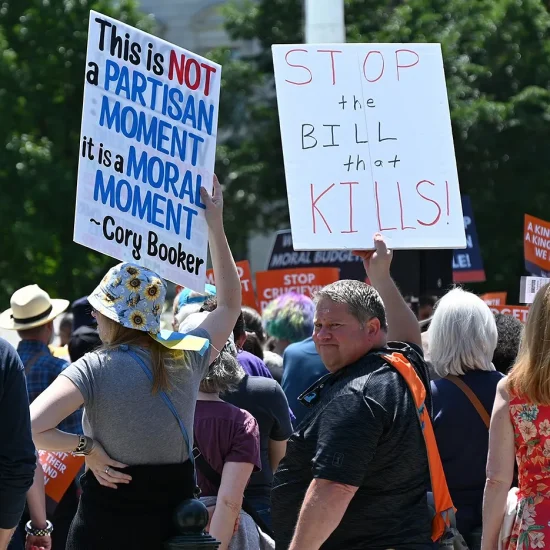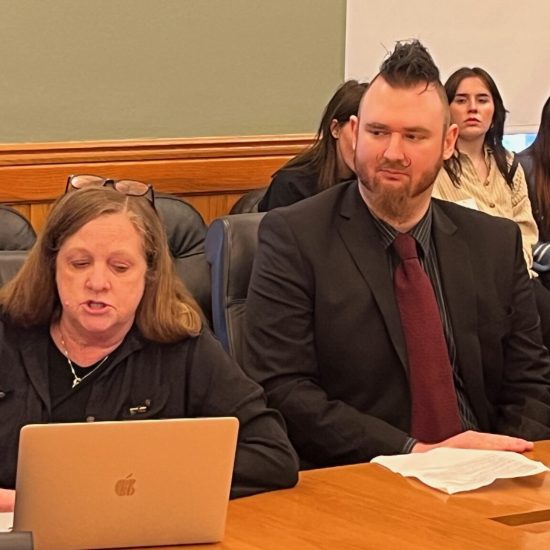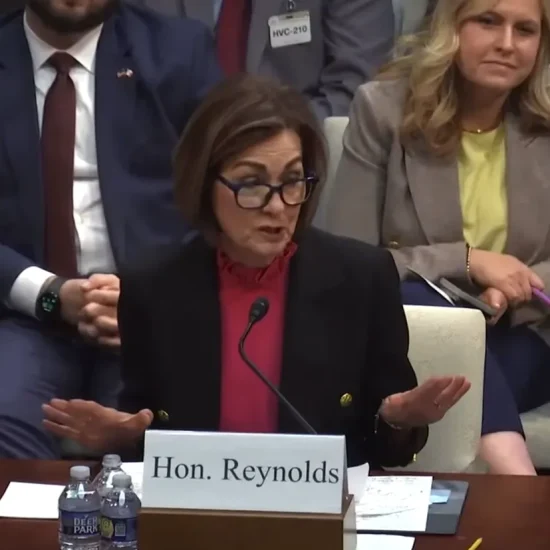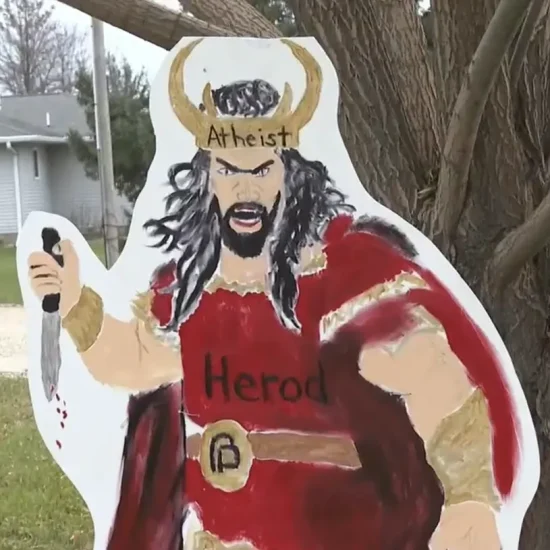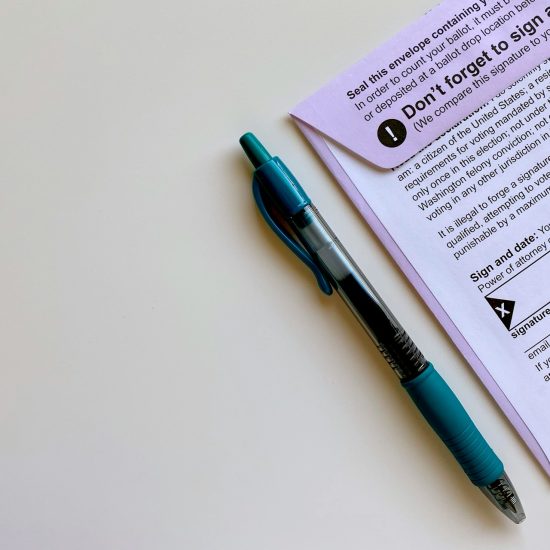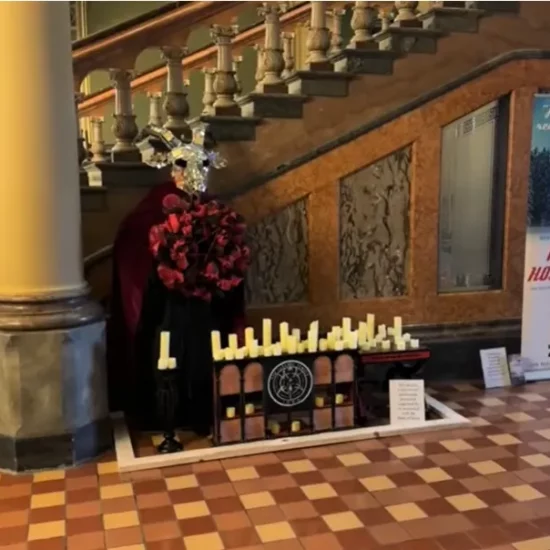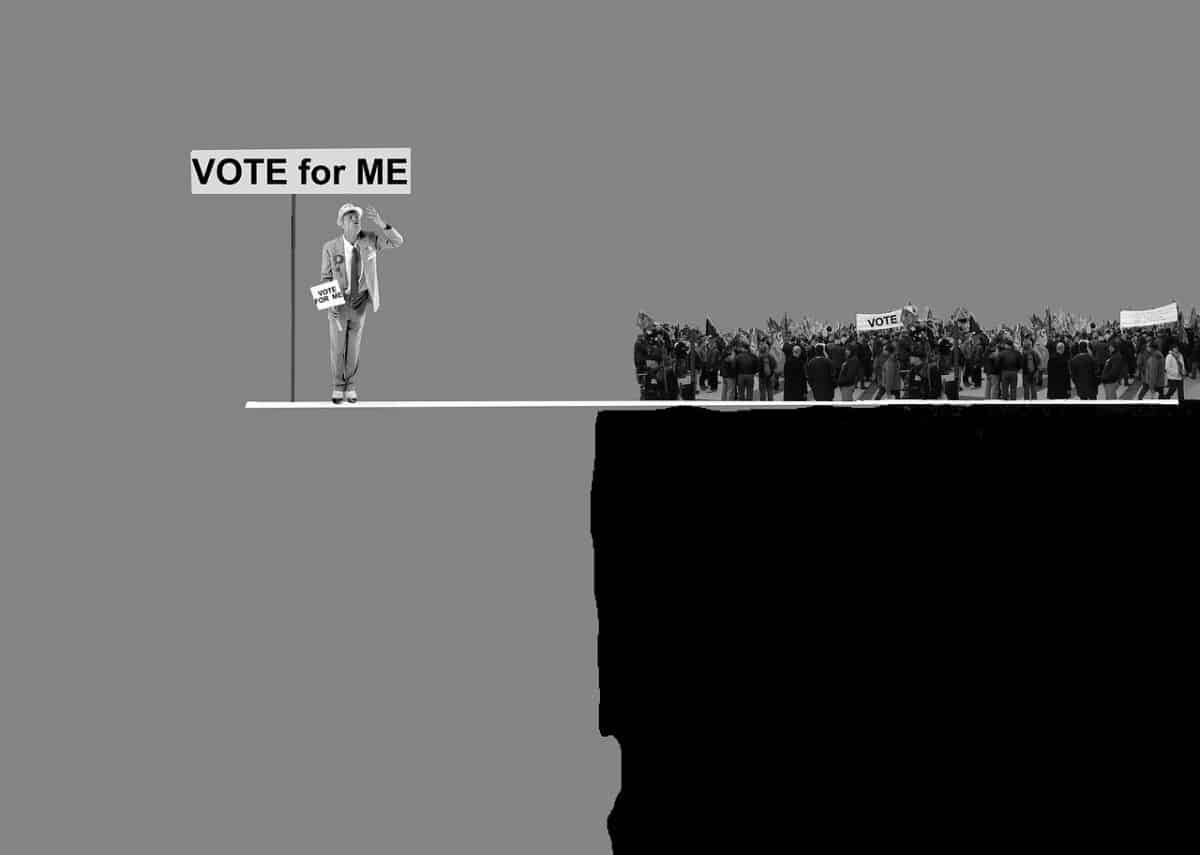
Next week, “voting” will finally begin in the 2020 presidential election. I put voting in quote marks because it’s hard to call what happens in Iowa a vote. And having observed in person such, uh, let’s call it “candidate picking,” I also wonder if they can serve as a good reminder for congregations not getting stuck on bad traditions.
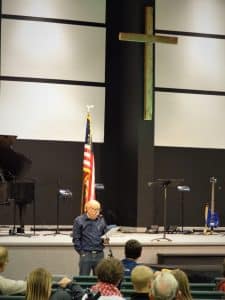
Someone gives a “speech” to support a candidate at a 2016 Republican Caucus. (Brian Kaylor/Word&Way)
But perhaps I should first explain the Iowa Caucuses. That is, if anyone can really explain what they’re doing up there (and perhaps I’m not just talking about the “voting”). The Republican side, which I observed in a church gymnasium in 2016, is more like what we expect a vote to be. The main difference is you can’t just go by the ballot box anytime that day and you can’t vote absentee.
Instead, you have to show up on a cold, dark evening that probably includes snow. Then after checking in, you sit and listen to remarks on behalf of each candidate that has a “representative” present. Again, the quote marks. In some districts that may be an articulate campaign worker. But with so many sessions across the state, the speaker for a candidate might just be your neighbor down the street who has 50 campaign signs for one candidate in their yard.
Then the “voting” begins. On a piece of paper, you write the name of a candidate. Or, really, anyone. You could write my name down. Which, now that that I think about it, is a pretty good idea. (Note to readers in Iowa: it’s spelled B-r-i-a-n_K-a-y-l-o-r.)
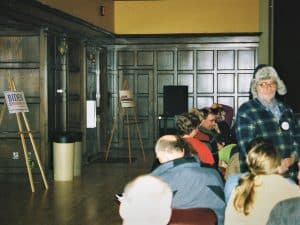
People waiting for the “voting” time at a 2008 Democratic caucus. (Brian Kaylor/Word&Way)
On the Democratic side, which I observed in a university ballroom in 2008, things get even weirder. It’s still held during a cold, dark, and probably snowy night. And you still have to listen to “speeches” (without the quote marks if you’re lucky). But then instead of a ballot or even a blank piece a paper, you get up and walk over to a sign for your favorite candidate.
That’s right. You vote in public view. In front of all your neighbors — well, the Democratic ones that bothered to show up — you stand by a sign to vote. Then it gets worse. And I promise I’m not making this up because I’m really not this creative.
There is a set amount of time to persuade people to change their vote, usually something like 30 minutes. And to up the game a bit — because it’s not like this is some important matter like picking the leader of our nation — the votes only count if you get at least 15 percent of the voters present to stand by your man or woman’s sign.
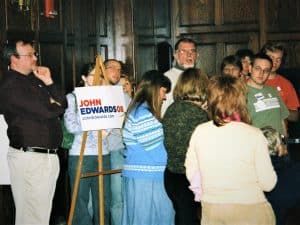
People “voting” at a 2008 Democratic caucus. (Brian Kaylor/Word&Way)
Let’s flesh that out. To have easy math (my favorite kind), let’s say there are 100 voters present. You need to get 15. So, if you and 10 of your neighbors stand by the sign that says “Brian Kaylor,” you then have three options: 1. You convince four more people to join you to stand by the best name. 2. You give up when that fails and go walk over to the sign for your second-favorite candidate (let’s call that candidate Ken Satterfield). 3. You give up, grab your coat, and go home without a vote counting.
I saw all three things happen. Then when the time is up, all those with at least 15 percent are counted. This year, the Democrats will report multiple numbers for the first time, including the raw vote totals from the first round, which means multiple candidates could “win” (or that we all lose). This all starts to support that old Will Rogers quote: “I am not a member of any organized political party — I am a Democrat.”
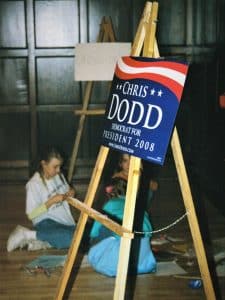
This candidate didn’t receive 15% at this Democratic caucus in 2008, nor did the “uncommitted” in the background. (Brian Kaylor/Word&Way)
Oh, yeah, and if that’s not crazy enough, there’s a sign you can stand by that says “uncommitted.” I’m not sure who decides to go spend a couple hours “voting” when they’ve not picked a candidate after seeing 10,000 ads and having seven actual candidates show up at their house to shovel the driveway. But apparently some people like putting a bullseye on themselves for the free agency round. Fun fact: Uncommitted actually got the most votes in 1976 but without a photo for the front pages the newspapers printed runner-up Jimmy Carter instead and that publicity helped send him to the White House.
And with that corny process just slightly better than rolling dice or using an Ouija board, some candidates will drop out of the race since the Iowa winner eventually gets the nomination more than half the time.
So, how did Iowa become so important and get to go first? A complete accident. Because their process is so bizarre and actually involves multiple levels of voting beyond next week’s first round, they ended up first in the 1970s during some reforms to make elections more transparent. Then when Carter used his second-place “victory” to move from his peanut farm to the White House, Iowa became important and everyone showed up there four years later. And now Iowans act like they were chosen by God to go first, and thus fight to keep that status despite their insane process with low turnout.

Signs in church hosting a 2016 Republican caucus. (Brian Kaylor/Word&Way)
But isn’t that just how we are? We do something. It might not be a very good idea and we might not do it well. But then it quickly becomes the way we’ve “always” done it even if we haven’t done it that long. And then when people suggest doing it a better way, we gasp and act like they’re monsters.
How many stifling and odd traditions do we hold in our churches that are just as unhelpful and not much older than the Iowa Caucuses? Are we willing to observe our practices from an outsider perspective or listen to one who sees us with a fresh lens? Or will we continue to stand around and ignore the signs that something’s not working?
If you could start your church from scratch, what would you do differently? Think of something your church does that’s unhelpful or at least unnecessary. Now work on changing it. Our God is unchanging but that doesn’t mean our churches should be.
So, while I’m tempted to laugh at those Iowans next Monday, perhaps I should first think carefully about how we’re acting on Sunday.
Brian Kaylor is editor and president of Word&Way.

